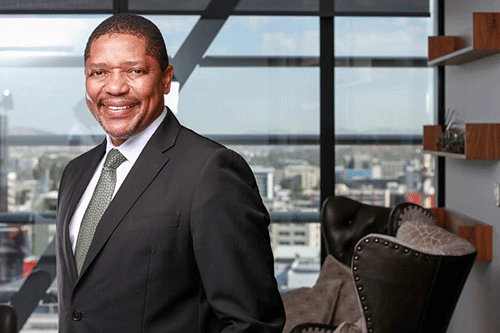Nedbank Group delivered a strong financial performance for the 12 months to 31 December 2023 compared with the 12-month prior as headline earnings (HE) increased 11% to R15.7 billion.
“In a difficult economic environment, this growth in HE was enabled by a strong operational performance as pre-provisioning operating profit increased by 15%, underpinned by 12% revenue growth including associate income and prudent expense management, partially offset by a 30% increase in the impairment charge, which reduced from the 57% increase in this charge reported in H1 2023. As a result, the group’s credit loss ratio (CLR) improved from 121 bps (H1 2023) to 96 bps (H2 2023) and therefore 109 bps for the full year,” the group noted via a media statement.
It added that the diversification benefit across its portfolio of businesses was
evident in very strong growth in HE from Nedbank Africa Regions (NAR), albeit off a low base, alongside solid performances with increases in both HE and return on equity (ROE) from Nedbank Corporate and Investment Banking,
Nedbank Retail and Business Banking and Nedbank Wealth.
Nedbank chief executive, Mike Brown said a highlight of the year was achieving all the group’s post-Covid targets for 2023 announced in March 2021. “Two of these targets were already achieved in 2022 – exceeding the 2019 diluted headline earnings per share (DHEPS) of 2 565 cents and ranking #1 on Net Promoter Score (NPS). “In 2023, we further increased DHEPS to 3 199 cents, up by 14% year on year (yoy), and we maintained our #1 NPS ranking among South African banks. Pleasingly, at the end of 2023, we also met the remaining two targets, by reporting an ROE of 15,1% ahead of the target level of 15,0% and a cost-to-income ratio of 53,9%, which is lower than our target of 54%.”
Terence Sibiya, Group Managing Executive, Nedbank Africa Regions, said: “I am delighted that the group delivered a strong performance and I am of course incredibly pleased that the NAR business delivered a stellar performance because of improved performances from the SADC managed operations & strong earnings from our Ecobank Transnational Incorporated (ETI) associate investment including the release of the R175m Ghana sovereign bond provision that Nedbank took in 2022.
The Nedbank Africa Regions (NAR) business has operations in Eswatini, Lesotho, Mozambique, Namibia, and Zimbabwe as well as representative offices in Ghana and Kenya. Nedbank Group also has a 21.2% shareholding in Ecobank Transnational Incorporated (ETI), which is a leading private pan-African banking group present in thirty-five (35) sub-Saharan African countries in Francophone West Africa, Nigeria, Anglophone West Africa and Central, Eastern and Southern Africa (CESA).
“As I reach the final stretch of my 14 years as CE of Nedbank Group, I look back with pride on our achievements and the challenges we have overcome together. When I retire at the annual general meeting in May 2024 and hand over to Jason Quinn, I know I leave behind a better Nedbank than what I was entrusted with, and that Jason and the Nedbank team will inherit strong foundations from which to build an even better future for all our stakeholders.”
Africa Regions
Sibiya added that “I am delighted that the group delivered a strong performance and I am of course incredibly pleased that the NAR business delivered a stellar performance because of improved performances from the SADC managed operations and strong earnings from our Ecobank Transnational Incorporated (ETI) associate investment and the reversal of the R175m provision that Nedbank raised in 2022 in lieu of the Ghana sovereign debt situation”.
He continued that Nedbank’s SADC operations delivered HE of R662m, up by 80% (2022: R367m) and an ROE of 9.9% (2022: 5,9%). This, the group stated, was a result of strong growth in revenue, up 21% to R4 290m, largely driven by an expansion in NIM and net forex gains in Zimbabwe. “This strong growth in revenue was achieved despite increased reserve requirements in Mozambique and muted economic growth across the regions,” the Nedbank group stated.
Moreover, in its outlook for sub-Saharan Africa, the group noted that the macroeconomic environment in continues to remain challenging, albeit improving.
“Forecasts suggest pedestrian economic growth, lower average inflation, a continuation of higher interest rates although improving in the second half of 2024 for an extended period, resulting in limited availability of affordable capital to most sovereigns. The IMF forecasts that the region is projected to grow by an estimated 3,8% in 2024, up from 3,3% in 2023,” the group stated.
“We continue to monitor the impact of higher interest rates on our clients and the markets we operate in, as well as the progress of the liquefied-natural-gas (LNG) projects in Mozambique and the hyperinflationary and macroeconomic environment in Zimbabwe,” said Sibiya.


